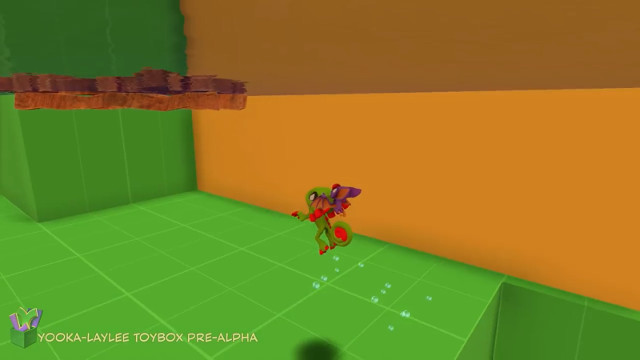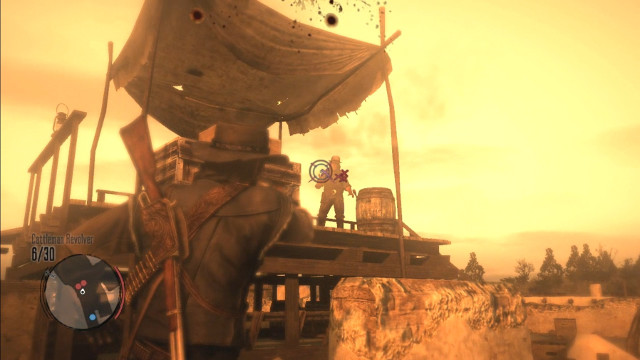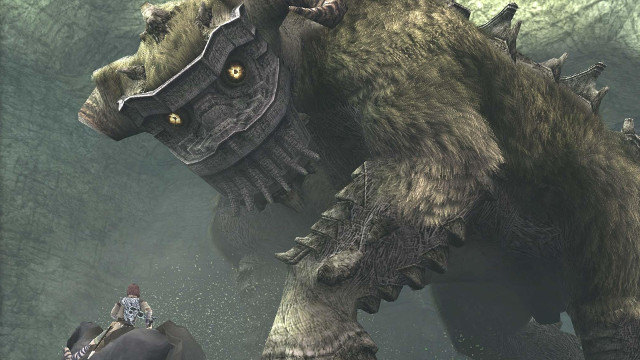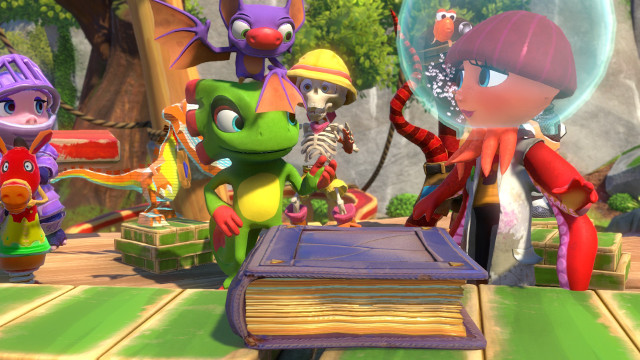The concept of Impersonation vs Evocation is best used to describe vocal performances of historical figures – whether or not someone is trying to sound exactly like a given person (impersonation) or if they are merely trying to remind you of that person (evocation). Vocal dialect coach Erik Singer discussed this topic last year, and it’s also been written about in books well before today’s time.
Applying this logic to video games, specifically spiritual successors, is relatively easy. Is this “spiritual successor” trying to do what is essentially the exact same thing as its source of inspiration, or is it merely trying to remind the gamer of a certain key aspect of its predecessor? A spiritual successor that is only an impersonation of a past game might as well be a sequel, or at very least a parallel sequel, or “paraquel,” that might take place in the same universe but handle different characters. Therefore, the only way to actually capture what a spiritual successor, which seeks to fundamentally alter the experience while maintaining its feel, is supposed to be is to aim for an evocation of its source material – not an impersonation.
The truth is, though, that the modern day conception of a spiritual successor is born more out of practicality. Using a game like Dark Souls as an example, it is only considered a spiritual successor to Demon Souls because From Software didn’t own the rights to the Demon Souls name, so they had to make a "new" intellectual property.
This was also the case with Yooka-Laylee (the inspiration for this analysis), where the developers couldn’t make a new Banjo-Kazooie sequel or paraquel because that IP is owned by Rare (who is owned by Microsoft). The modern conception of a spiritual successor is little more than a technicality used to work around legal and bureaucratic obstacles. Let’s dig up some more examples.
Impersonations
And why not start with the inspiration for this article? Yooka-Laylee, as anyone who has read anything about it can tell you, is purported as a spiritual successor to Banjo-Kazooie. As I went over in my review, I really enjoyed Yooka-Laylee, and I laid out a series of features from Banjo-Kazooie that are done differently and even better in Playtonic’s take on it.

The feeling I get from playing Yooka-Laylee is that Playtonic, a team largely made up of ex-Rare developers who worked on Banjo-Kazooie, asked themselves what Banjo-Kazooie would look like if they made it in 2017. And this is not to say that Playtonic was wrong in their thinking. They wanted to make an updated Banjo-Kazooie, and they succeeded in meaningful ways. That’s not a bad thing; it’s just not a spiritual successor.
The things changed in Yooka-Laylee were mostly superficial. Yes, collectibles are more varied. Each different type of collectible is gathered in a different way and offers a unique benefit, as opposed to no benefit at all, usually, in Banjo-Kazooie. But these changes don’t vary the framework whatsoever. I think of it like this: if you played Yooka-Laylee in a completely texture-less build (picture simple, grey polygons populating the environment, like the pre-alpha footage but with a non-descript main character), it would still feel like a Banjo-Kazooie game, albeit an improved version. Again, this is not a bad thing, but it’s a sequel – not a spiritual successor.
And let’s not pile on Yooka-Laylee here. There’s plenty more ammo in the chest. We already mentioned Dark Souls, so let’s mention another beloved title, Amnesia: The Dark Descent. What was obviously a spiritual successor to the Penumbra but restricted by the fact that Pardox Interactive owns Penumbra, Amnesia: The Dark Descent is very clearly an impersonation. They changed some superficial aspects (i.e. they removed the awful and useless combat), but, again, played in a texture-less environment, I challenge anyone to be able to spot one over the other.
Evocations
Now, am I but a curmudgeon squawking about how things aren’t like they used to be? Perhaps, but I can also recognize when a true evocation does occur in a spiritual successor, and it’s an easy conclusion at which to arrive.
Perhaps one of the most popular and certainly one of the most acclaimed games of the modern era is Red Dead Redemption, but what was once hipster-level knowledge is now mainstream, and everyone knows that Rockstar’s most recent Western is a spiritual successor to Red Dead Revolver. And anyone who played Red Dead Revolver (all six of us) can tell you that the games are dramatically different.

In the case of Red Dead Redemption, the superficial elements of Revolver are perhaps the most un-touched aspects the former borrowed. You still have Dead Eye, the slow-motion shooting mini-game used to hit specific, moving targets. You still have Duels, which operate in mostly the same ways, albeit a little more technical in Revolver. You still buy weapons and other items at stores throughout the world. These aspects, as well as the basic details of Red Dead Remption’s status as a third-person shooter set in the old west, help it capture the feel of the original the way a spiritual successor should.
But, it’s also very much its own game, separate from its source material. Revolver was a linear gallery-shooter that took you from level to level via cutscenes and graded your performance in the interim. Redemption completely shook up the framework, giving you an open-world game with side-quests and expansive, explorable environments, in addition to other added elements.
Now, you could reasonably argue that Red Dead Redemption is an impersonation of a game like Grand Theft Auto, and with some success, but it’s also very clearly an evocation of Red Dead Revolver, and that’s more on topic. It’s a spiritual successor because it can’t reasonably be a sequel.
 Shadow of the Colossus is another good example, evoking the themes of Ico without copying it.
Shadow of the Colossus is another good example, evoking the themes of Ico without copying it.
Another great example is Shadow of the Colossus, the spiritual successor to Ico. The gameplay is almost nothing alike, but SotC manages to carry over elements like world design, music and storytelling that act as common threads inextricably tying one to the other. This shows another way one title can spiritually succeed another, because, short of those comparisons, you have a completely different game. Ico is a puzzle platformer that focuses on removing obstacles and escorting a mysterious girl across treacherous environments. SotC takes you on a more open path where your goal is to kill colossi by climbing to and attacking their weakpoints.
But these evocations simply aren’t happening anymore, and spiritual successor is just a label that means “we didn’t have the rights to the game we wanted to make.” Is this a bad thing? No. It changes the games we play not one bit. But the definition of what has produced some of the most memorable video games has been fundamentally altered, and what we used to know as a spiritual successor simply doesn’t exist anymore.







